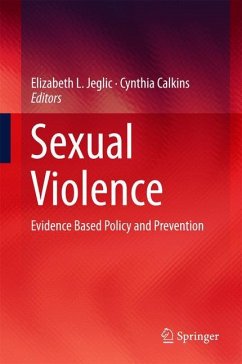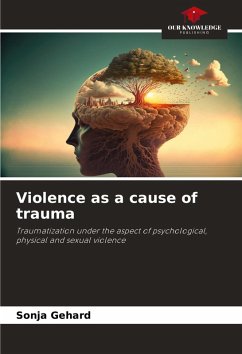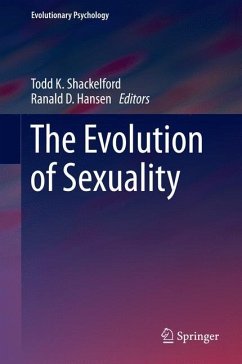
Understanding Indigenous Gender Relations and Violence
Becoming Gender AWAke
Versandkostenfrei!
Versandfertig in 6-10 Tagen
113,99 €
inkl. MwSt.
Weitere Ausgaben:

PAYBACK Punkte
57 °P sammeln!
This book focuses on the inequities that are persistently and disproportionately severe for Indigenous peoples. Gender and racial based inequities span from the home life to Indigenous women's wellness-including physical, mental, and social health. The conundrum of how and why Indigenous women-many of whom historically held respected and even held sacred status in many matrilineal and female-centered communities-now experience the highest rates of gendered based violence is focal to this work. Unlike Western European and colonial contexts, Indigenous societies tended to be organized in fundame...
This book focuses on the inequities that are persistently and disproportionately severe for Indigenous peoples. Gender and racial based inequities span from the home life to Indigenous women's wellness-including physical, mental, and social health. The conundrum of how and why Indigenous women-many of whom historically held respected and even held sacred status in many matrilineal and female-centered communities-now experience the highest rates of gendered based violence is focal to this work. Unlike Western European and colonial contexts, Indigenous societies tended to be organized in fundamentally distinct ways that were woman-centered and where gender roles and values were reportedly more egalitarian, fluid, flexible, inclusive, complementary, and harmonious. Understanding how Indigenous gender relations were targeted as a tool of patriarchal settler colonization and how this relates to women more broadly can be a key to unlocking gender liberation-a catalyst for readers tobecome 'gender AWAke.' Living gender AWAke encompasses living in alignment with agility (AWA) with clear awareness of how gender and other sociostructural factors affect daily life, as well as how to navigate such factors. To live in alignment, is to live from ones' center and in accordance with one's authentic self, with agility, by nimbly responding to life's constantly shifting situations. This empirically grounded work extends and deepens the Indigenist framework of historical oppression, resilience, and transcendence (FHORT) by delving deep into the resilience, transcendence, and wellness components of FHORT while centering gender. Understanding the changing gender roles for Indigenous peoples over time fosters decolonization more broadly by enabling greater understanding of how sexism and misogyny hurt people across personal and political spheres. This understanding can foster the process of becoming gender AWAke by identifying and dismantling of sexism and by becoming decolonized from prescriptive gender roles that inhibit living in alignment with one's true or authentic self.
Readers will gain:
a research-based approach linking historical oppression, gender-based inequities, and violence against Indigenous womenunderstanding of how patriarchal colonialism undermines all genders a tool to dismantle sexism more broadlypathways to become Gender AWAke through the understanding of Indigenous women's resilience and transcendence
Readers will gain:
a research-based approach linking historical oppression, gender-based inequities, and violence against Indigenous womenunderstanding of how patriarchal colonialism undermines all genders a tool to dismantle sexism more broadlypathways to become Gender AWAke through the understanding of Indigenous women's resilience and transcendence














